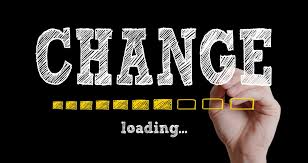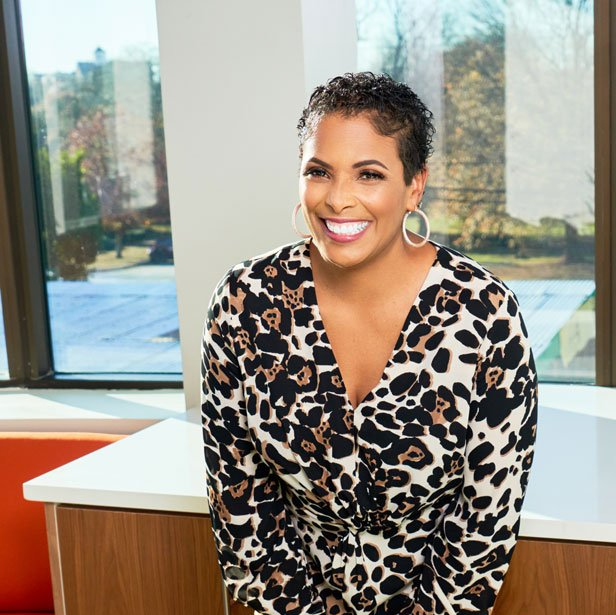Judging or Discernment
Christina Callaway • July 3, 2022
"Sound judgement, with discernment is the best of both seers." ~ Eurphidies

Have you ever said or was told by someone, "Don't judge me"? Chances are, you have. What if you knew there is a reason we judge ourselves and others? We have all heard of IQ (intelligence quotient), EQ (emotional intelligence quotient), and RQ (relationship intelligence quotient). Have you ever heard of PQ (positive intelligence quotient)? Recently, I started a course in Positive Intelligence and I have learned a tremendous amount. For example, did you know that the voices in your head that generate negative emotions (stress, anxiety, self-doubt, frustration, restlessness and unhappiness) in how we handle life's everyday challenges are called Saboteurs? They represent automated patterns in our minds for how to think, feel and respond, and they sabotage our performance, wellbeing and relationships.
There is a universal Saboteur that afflicts everyone. It is called The Judge. It beats us up repeatedly over mistakes or shortcomings, warns us obsessively about future risks, wakes us up in the middle of the night worrying, gets us fixated on what is wrong with others in our life, and more. It is our greatest internal enemy. It is responsible for questions such as "What is wrong with me?", "What is wrong with you?" and "What is wrong with my circumstances or this outcome?" All guilt, regret, shame and disappointment are from The Judge. It even justifies the thoughts and feelings with lies such as: "Without me punishing you, you will get lazy and complacent.", "Without me punishing you for mistakes, you will not learn from them and you will repeat them.", Without me scaring you about bad future outcomes, you will not work hard to prevent them.", Without me judging others, you will loose your objectivity and not protect your self-interest." There is an impact on ourselves and others when The Judge is operating. As I mentioned, The Judge is responsible for much of our anxiety, distress and suffering. It also is the cause of much of relationship conflicts (credit Positive Intelligence).
Have any of these thoughts ever entered into your mind? Don't "judge" yourself. As I mentioned The Judge is the master Saboteur and it afflicts everyone. There is good and bad news. The bad news is we cannot get rid of The Judge. The good news is with practice, we can lessen the control and power The Judge has inside of our minds. In the same manner as us going to the gym to exercise our physical bodies, we can spend time in the mental gym disarming The Judge and increasing The Sage part of our minds. The Sage is the one in you that handles challenges with a clear and calm mind, and positive emotions. The Sage looks at any situation - no matter how difficult or challenging - can be converted into a gift and opportunity.
I hear you saying, "How can I possibly change how my mind responds to circumstances and events? I have thought this way all of my life." That is The Judge responding to the idea of change. Through training our minds to switch on our Sage/Discerning perspective, we are able to lessen the power The Judge has over us. We all have five Sage Powers that can meet any challenge. When we switch on our Sage perspective, we have access to all five powers: Empathy, Explore, Innovate, Navigate and Activate. So, what does it look like to "switch to our Sage/Discerning perspective?" Keeping in mind The Judge is the controlling Saboteur, it will not be an easy task. In order to strengthen our Sage Powers, it is necessary to learn how to focus with intentionality on the event that is happening. This is done through breathing and visualization. Repeating targeted PQ reps*, helps to strengthen our mental muscle so our Sage Powers are better able to respond to the hijacking of The Judge.
I am four weeks into my journey of building my mental muscles. I can tell I am much more aware of my thoughts and being more present. I can tell when someone's Saboteurs are hijacking my thoughts. When this happens, I stop, take some breaths to get focused and then activate the appropriate Sage Power. While I have missed the mark several times throughout this journey, I find that I am able to forgive myself rather than judge myself as a failure. The result of me being able to use my Sage is improved relationships.
If you would like to know how to you too can strengthen your mental health and begin to see improvements in your relationships and personal well-being, schedule your FREE Clarity Call today. I would love to partner with you.
*PQ Reps are very simple. It involves shifting as much of our attention as we can to our body and of our five senses for at least 10-seconds. These reps activate and grow our 'self-command' muscle which helps us self-regulate our thoughts and feelings (credit Positive Intelligence).
Christina Callaway is a Certified Mindset and Confidence Coach helping individuals to meet their goals one mind shift habit at a time. If you are ready to reach your goals, schedule your FREE Clarity Call today!
#blog #blogger #blogpost #mindset #mindsetcoach #confidence #confidencecoach #mindsetshift #positiveintelligence #saboteurs #judgement #discerning

Have you ever wondered why change is difficult? Tony Robbins says, "Change happens when the pain of change becomes greater than the pain to remain the same." We are creatures of comfort and of habit. Most of us don't do well when our regular routine gets interrupted, or the way we do our job is changed. For instance, take a look on social media and you will see angry posts when the person's App gets a new update. So, what makes us so resistant to change and how can we change it? If you saw my Mindset Monday post earlier this week, it included five reasons people resist change. I will review each of these reasons and provide you with a way to get beyond your resistance. 5 Reasons People Resist Change and How to Move Beyond It 1) People fear being different especially if what they are being asked to do has never been done. - If you are the leader initiating the change, you move beyond this resistance by effectively communicating and demonstrating to minimize hurt feelings and frustration. You must balance telling and showing. 2) People feel overwhelmed and stressed. - If you are a leader or individual who has experienced a lot of change in a short period of time, fatigue can set in. When people are tired, they tend to irritable and angry. Their resistance to change is front and center. You move beyond this resistance by a) being understanding to their complaints and b) attentive to their needs through the process. Keep the focus on the reason for the change and make the environment more appealing to accept the change. 3) People fear a departure from the status quo. - Even though the reason for the change is to move away from the idea "we've always done it this way", resistance is met from those who were a part of the old way or those who have a different idea, may be defensive of both. The way to move beyond this resistance in either case is to acknowledge the parts from the past that are good and by making it clear that the suggestions that are being made are necessary. 4) People lack trust in the one making the change. - When people have trust in their leader, they become skeptical in a new leader. It is important that the new leader embraces the responsibility of cultivating a relationship that can be trusted. If trust is not built, mistrust is the default. Leaders can cultivate trust by including people in the change and by creating an environment where the people feel the change can be a benefit for all involved. 5) People know change brings a new set of possibilities and problems. - Naturally we know change brings a new set of possibilities and problems. Most of us will reject the possibilities if it also means avoiding problems. Leaders can overcome this resistance by creating certainty in the process. The next time you are faced with change, ask yourself these five questions and then choose to overcome your objections. Remember, "Change happens when the pain of change becomes greater than the pain to remain the same." Are you tired yet? #blog #blogpost #blogger #mindsetcoach #conifidence #confidencecoach #mindsetshift Christina Callaway is a Certified Mindset and Confidence Coach helping individuals to meet their goals one mind shift habit at a time. If you are ready to reach your goals and overcome your resistance to change, schedule your FREE Clarity Call today!

As a former competitive athlete, I am grateful my parents had a healthy balance of knowing when to push me to be my best and when to turn the reigns over to me and allow my own intrinsic motivation to be the fuel that drove my desire and passion. I remember some of our conversations during the car ride home as they asked me "How was practice?" The conversations were brief and positive. Most of their questions were simple, such as, "Are you still enjoying gymnastics?" Our conversations after a competition weren’t much different. Those questions sounded like, "how do you think you did today?" and "what do you want to eat?" Let's face it, my gymnastics meet were a family affair and by the time the meets ended, everyone was exhausted from having endured four hours of sitting on hard bleachers. The last thing anyone wanted to do was listen to a play-by-play of what they had just watched. On the off chance I had not done particularly well and I was upset, my father would help me by asking me if I had done my best. If I assured him that I had, he would respond MY best is all I could do. I would then get a life lesson on how there would always be someone better than me. MY responsibility in practice was to prepare to be MY best and then go out and do MY best every time with the understanding that sometimes MY best would not be good enough; however, that did not mean I was a failure or that I should stop doing or being MY best. Unfortunately, conversations like the one I shared with my father are too often missing in youth sports today. As a coach for over three decades, I have seen and heard colleagues say athletes are leaving sports sooner than they would like for them to because of the car ride home. So, what is it about the car ride home that “drives” so many athletes from the sports they love? As a Certified Mindset and Confidence Coach, I can share with you some common mistakes parents are making during the car ride home. If you identify with any of these, I can assure you there is still time to "reverse" course and change the dialogue between you and your athlete. Well-meaning parents are failing to recognize the that time after a game (or practice) is critical for their athlete. What makes the car ride home such a critical time for the athlete? Kids are physically and emotionally exhausted. This is not the time for parents to choose to make it a "teachable moment” by commenting on the coach’s decisions or their child’s performance (or lack thereof).

What comes to mind when you think about this question? Five years? 10 years? Most of us would call ourselves creatures of habit. We operate on automatic pilot for 95% of our daily routine. From the time we wake up in the morning until we go to bed, we probably give very little thought to the mundane tasks that we do, and it’s not until we are asked to do something outside of these tasks that we actually stop to think about our actions. So, why don’t we change our habits more often? Or the other question, why is it important to change our habits? Studies have shown when we break the monotony of our “time to make the donuts” routine, we stimulate the myelin (the protective membrane surrounding the nerve endings in our brain) in our brain which helps our memory. We become resistant to change because we enjoy being in control and we grow comfortable. The downfall to both of these states of being is we then limit our opportunities to success, growth, meeting others, and an overall decline in our health. 5 Benefits of Doing Something New: 1) Improve our brain function - 'mental sweat' helps our brain build new cells and strengthen connection between the cells. To challenge ourselves, we should identify at least one thing a month that we can do for the first time. When we learn something new we are exercising our brain, which can help improve cognitive functions such as concentration, attention to detail, memory recall and problem solving, and also reduce the chance of developing dementia. 2) Meet new people - taking up a new hobby or sport or going to a class to learn something new is a great way to meet new people. Not only will you learn something, but you’ll also spend time with other people who have a similar interest and potentially make new friends. 3) Become involved in our community - Depending on what you learn, you may develop a sense of feeling more connected to your community. Coming together with other locals for a common purpose will help give you a sense of community and belonging and may benefit the place you live in. 4) Feel good about your new skill - There is nothing more satisfying than a sense of achievement. Setting yourself a goal to learn something new, then achieving it, is super rewarding and gives you a sense of accomplishment. 5) Have fun - While learning something new may be challenging, it can also be heaps of fun. Most people won’t great at something they haven’t tried before when they first start, but it can be really enjoyable to be pushed out of your comfort zone when you try something new. (https://www.healthnavigator.org.nz/healthy-living/l/learning-new-things-the-benefits/). Examples of Trying Something New Brush teeth with the opposite hand starting on the opposite side of your mouth Sit in a different chair when you come home from work. Take a different route home for work Listen to a podcast Doodle or try an adult size coloring book Volunteer for an organization Doing any one of these small tasks will strengthen neural connections in the brain and even grow new ones. It’s similar to how physical exercise improves our body’s function and grows new muscle. Challenge yourself for the next two weeks to do something new for first time. You just might surprise yourself. #blog #blogpost #blogger #mindsetcoach #conifidence


